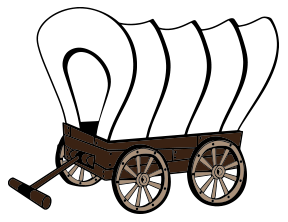THE NURSE’S NOTE: RESPIRATORY ILLNESS
Each fall and winter, it is typical for illness rates to increase. In attempts to hinder the spread of
contagious illness in school, district nursing staff will be following the guidelines recommended by public health authorities. We ask that you make sure the school has current contact information including your home, work and emergency numbers. Please plan for child care at home if your child becomes ill.
INFLUENZA AND COVID-19:
Influenza and Covid-19 are both contagious illnesses, but they are caused by different viruses. There are many different viruses and they are constantly changing. Flu and COVID-19 cause illness, hospitalization and deaths in the United States each year. The flu can be very dangerous for children. For this reason, we are asking parents to keep their children home until they are well enough to return without being contagious to others. People with influenza may be able to infect others from 1 day before getting sick up to 5-7 days after. Severely ill people and young children may be able to spread the flu longer. Each person with a case of influenza or COVID-19 is required to be isolated at home for 5 days following onset of illness or until fever free for 24 hours without the aid of fever reducing medications, whichever is longer, except when seeking medical care.
SYMPTOMS INCLUDE : You cannot tell the difference between Flu and Covid-19 by the symptoms alone because they have many in common. These include Fever, cough, sore throat, runny or stuffy nose, body aches, headache, chills, fatigue and sometimes vomiting and diarrhea (more common in children than adults) and changes in taste or smell (more common with COVID-19). Some people with the flu will not have fever. Consulting with a healthcare provider is the only way to know.
Recommendations to prevent from getting sick with the respiratory viruses at school and at home:
1. Practice good hand hygiene by washing your hands often with soap and water, especially
after coughing or sneezing. Alcohol based hand sanitizer is also effective. Also, avoid
touching your eyes, nose or mouth.
2. Get your family vaccinated.
3. Practice good cough etiquette ( turn head away from others, cough into your arm or a tissue,
discard tissue).
4. Stay home if you or your children are sick and avoid close contact from others who appear
ill. Remain at home for at least 24 hours after there is no longer a fever without the use of
fever reducing medications. Fever is defined as 100 degrees Fahrenheit (38 degree Celsius).
5. Seek medical care EARLY to get the most benefit from antiviral treatment options.
6. Do NOT take antibiotics that are leftover or are given by a friend or family remember.
These will not help with viral infections and may cause side effects.
7. Clean high touch surfaces frequently– door knobs, phones, car handles , keys
If you would like more information regarding respiratory viruses, please contact your school nurse, healthcare provider or the CDC website www.cdc.gov/flu .

